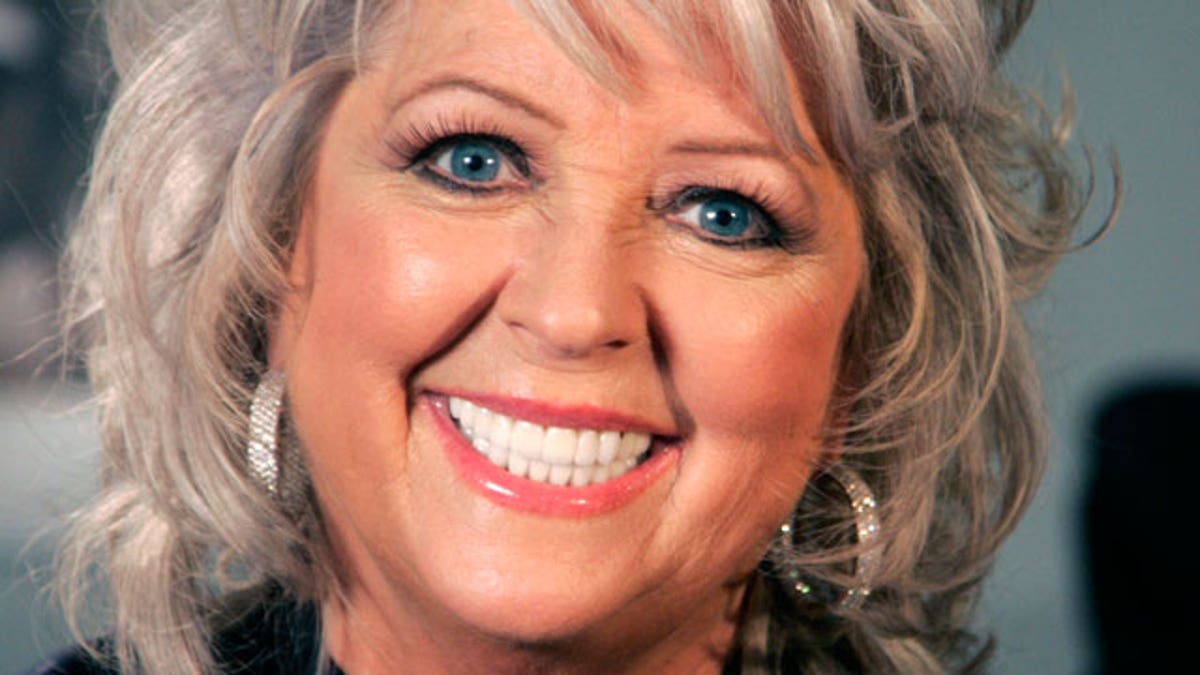
Paula Deen, the queen of butter, was diagnosed with diabetes several years ago, but she waited to go public with it-after lining up a lucrative drug endorsement deal. (AP)
Georgia's down-home diva Paula Deen was this week treated to an unhealthy serving of self-satisfied condescension after she admitted she has been diagnosed with Type 2 diabetes. But nowhere was the response more unsavory than on the New York food scene with its resident lothario Anthony Bourdain leading the assault.
Bourdain, himself a distinguished chef and travel writer, launched a searing critique of Deen for her concurrent announcement she had inked an endorsement deal of a diabetes drug.
"Thinking of getting into the leg-breaking business, so I can profitably sell crutches later," Bourdain said Tuesday. He has also previously called Deen the "worst, most dangerous person to America" for her country cooking indulgence. Even 2011 James Beard winner Jose Andres said that Dean should "endorse a vegetable or fruit" instead of a diabetes drug.
But the Bronx cheer for apparent chef-turned-rebel terrorist Deen, a prototypical Southern mother with a lifetime's recipes of irredeemably deep-fried dishes, is less a reflection of the culinary elitism that runs through Bourdain's vice-ridden travelogues than the regionalist snobbery that fuels its appeal.
Though I'm now just a week removed from the grueling presidential circuit with Jon Huntsman's weekend decision to leave the Republican presidential primary gauntlet, it takes only one church potluck to find the South's mothers incensed by the elitists volleys that have been coming at a kindred, indeed a legitimate icon, whose opus serves as the mortar for family gatherings both large and small. Whereever two or more are gathered, Jesus says to his apostles in Matthew, there he is with them. And in a Southern kitchen, there too is Deen.
From food to faith, the mythic Dixie--soulful and abundant, passionate and insubmissive--has always clashed with the rigidly cosmopolitan north, which keeps an ever watchful eye on we, her unlearned, drawling wards.
Yet the northern perspective of the South amounts to little more than a crude distillation of the most specious of stereotypes, the uncouth yang to their cultured yin. Reserving unparalleled contempt for the region's myths and manners, fundamental to northern exceptionalism is the notion of southern inadequacy.
The impulse for Bourdain to shepherd Deen and her flock, ignorant and fat the whole bunch, is driven by the presumption that inherent in the southern experience is something so harmful to the social accretion of our great union that it must be contained at all costs. God! Guns! Grease!
Deen's notorious reliance on sugar and butterfat is no more debilitating than the chic cuisine of the Hamptons or the Michelin-starred meals of New York.
For Bourdain, this uneven doling out of criticism for Deen and not his fellow Manhattan sophisticates is a contradiction on its face.
Of course, those of us blighted enough to live beneath the Mason Dixon line are blessed neither with Bourdain's sense of moderation (like those booze-fueled tromps from one premium tourist destination to the next) nor his superior breeding. After all, we are but rednecks to whom the concept of restraint is as foreign as breakthrough propulsion physics, or snow.
The regionalism-as-class inflection in the criticism of Deen, and the cuisine on which much of her devotees were raised, is unmistakable.
Deen, whose food empire can be traced many moons ago to a humble apartment in Savannah, cooks for those without the privilege to "pay $58 for prime rib or $650 for a bottle of wine," as she said this week.
Indeed, she cooks for means-strapped mothers like my own, who raised me in a pre-fabricated home older then than I am now. Now if only she had taken a fourth job, I might have been treated to molecular gastronomy over Deen's macaroni and cheese.
Southerners know that a steady diet of bacon-wrapped doughnuts and fried butter will induce various and sundry health complications just as sure as we know not to emulate Bourdain's once-serious drug habit. But if forced to choose a lesser vice, we would probably settle on the legal one.
Deen's retort to the fracas rang true of the South's self-determination: "Honey, I'm your cook, not your doctor. You've got to be responsible for yourself."
Manhattan would be better served if Bourdain championed that message.
James Richardson, southern communications counselor, was director of online communications for Jon Huntsman for President and was previously a spokesman and advisor for Mississippi Governor Haley Barbour and the Republican National Committee.
